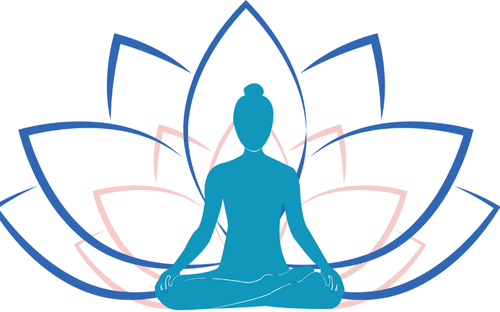Social Media and Mental Health: The Impact of Doomscrolling on Anxiety and Depression
Understanding Doomscrolling
Doomscrolling, a term that has gained widespread recognition in recent years, refers to the compulsive consumption of alarming news and negative information, particularly through social media platforms. This behavior has its roots in the increased accessibility of information brought about by the internet and social media in the early 2000s. As users have become accustomed to instantaneous updates, doomscrolling has emerged as a common habit, with negative news stories capturing the attention of individuals for prolonged periods.
Characteristics of doomscrolling include the relentless pursuit of distressing news, often characterized by a feeling of compulsion. Users may find themselves scrolling through social media feeds or news websites, unable to stop despite experiencing rising anxiety and emotional distress. This phenomenon is amplified by the plethora of events deemed newsworthy, especially during crises such as pandemics or political unrest, which can inundate social media with a constant stream of negativity. The combination of negative information and the nature of social media algorithms, which prioritize engagement, creates a perfect storm for those already prone to anxiety and stress.
Several psychological factors contribute to doomscrolling. One prominent aspect is the human instinct to seek information during uncertain times, as knowledge can provide a sense of control. However, in the context of doomscrolling, this quest for information often devolves into a cycle of anxiety and fear, worsened by the negative content consumed. Additionally, the social validation and collective experience of shared distress can perpetuate this behavior, as individuals connect with others while navigating the pervasive nature of bad news.
Overall, doomscrolling fits within the broader context of internet consumption habits, where addictive patterns can arise from the engagement structure of social media platforms. Understanding this behavior is essential in addressing its impact on mental health and developing strategies to mitigate its negative effects.
The Connection Between Social Media Use and Mental Health
The intersection of social media use and mental health has garnered considerable attention in recent years, particularly in relation to anxiety and depression. Numerous studies have illustrated a concerning trend: as social media consumption rises, so too do reports of mental health issues among users. Research indicates that individuals who spend excessive time on social media platforms are more likely to experience heightened levels of anxiety and depression. Surveys reveal that approximately 30% of users report feeling anxious or depressed after engaging with social media, underscoring the platform’s potential psychological toll.
One of the key elements influencing this relationship is the phenomenon known as Fear of Missing Out (FOMO). FOMO refers to the pervasive apprehension that one might be missing out on rewarding experiences that others are enjoying, often exacerbated by curated representations of life on social media. This feeling can lead individuals to engage in compulsive checking of their social feeds, leading to an endless cycle of anxiety and dissatisfaction. The comparison culture that permeates online environments compounds this issue; users frequently compare their own lives to the seemingly glamorous lives depicted by their peers. This constant comparison can elicit feelings of inadequacy and low self-esteem, further increasing the risk of depression.
Doomscrolling, or the continuous consumption of negative news on social media, exacerbates these mental health challenges. As individuals swipe through headlines rife with distressing content, it can lead to heightened feelings of helplessness and despair. Furthermore, the psychological impact of doomscrolling is reflected in various studies that link increased exposure to negative news with mood deterioration among users. Therefore, it becomes evident that social media is not merely a neutral platform; rather, its consumption patterns can significantly influence mental well-being.
The Effects of Doomscrolling on Anxiety and Depression
Doomscrolling, a term that describes the habit of continuously consuming negative news, has been linked to detrimental effects on mental health, particularly anxiety and depression. This phenomenon is characterized by a compulsion to keep scrolling through bleak headlines about various crises, disasters, or profoundly distressing personal accounts. As individuals engage in this behavior, they often find themselves immersed in a perpetual cycle of tension and discomfort. Studies suggest that such exposure can exacerbate pre-existing mental health conditions while potentially instigating new anxiety or depressive episodes.
For many, the habit of doomscrolling intensifies feelings of apprehension and inadequacy. Those with a history of anxiety report that constant exposure to distressing information heightens their sense of vulnerability and chaos in the world. They may feel a disproportionate level of concern regarding future events, leading to chronic stress and feelings of dread. Testimonials from various individuals reveal how their emotional states have deteriorated due to obsessive news consumption. One participant shared, “I used to be informed, but now, I just feel anxious and overwhelmed. My mood has spiraled down since I started doomscrolling late at night.”
Moreover, doomscrolling can foster a sense of helplessness among individuals. This feeling arises as news continually highlights the world’s challenges without presenting viable solutions, leading to a cognitive load that feels unmanageable. The result is often a state of burnout, both mentally and emotionally. People may withdraw from social interactions or other activities they once enjoyed, further isolating themselves and potentially worsening their mental health outcomes. Recognizing the impact of doomscrolling is crucial, as it sheds light on the need for mindful media consumption and intentional breaks from negative content.
Strategies to Combat Doomscrolling and Protect Mental Health
To minimize the adverse effects of doomscrolling on mental health, individuals can adopt several practical strategies. One effective approach is to curate social media feeds to prioritize positive and informative content. By following accounts that share uplifting stories, educational resources, and constructive discussions, users can create a digital environment that fosters well-being instead of exacerbating anxiety and depression.
Another critical strategy is setting time limits for social media usage. Allocating specific times during the day for checking social media can reduce the tendency to mindlessly scroll through feeds, which often leads to exposure to distressing information. Many devices have built-in features or apps to help track and limit screen time, allowing users to maintain a healthier balance between online and offline activities.
Fostering digital literacy skills is also essential. Understanding how algorithms work and recognizing the impact of misinformation can help users critically evaluate the content they encounter. Engaging in conversations about media literacy, sharing accurate information, and verifying sources can empower individuals to navigate the digital landscape more effectively and responsibly.
Incorporating self-care practices into daily routines can serve as a powerful counterbalance to the negative experiences associated with doomscrolling. Activities such as exercise, mindfulness meditation, or reading can provide much-needed breaks from social media. Pursuing hobbies and connecting with friends and family offline can reinforce emotional well-being while reducing reliance on digital platforms.
Lastly, seeking support from mental health resources or online communities dedicated to promoting healthier social media engagement can significantly benefit those struggling with the effects of doomscrolling. Many organizations offer professional counseling, workshops, and support groups designed to help individuals navigate their mental health challenges in an increasingly digital world. By utilizing these resources, individuals can enhance their resilience against the pressures of social media.



